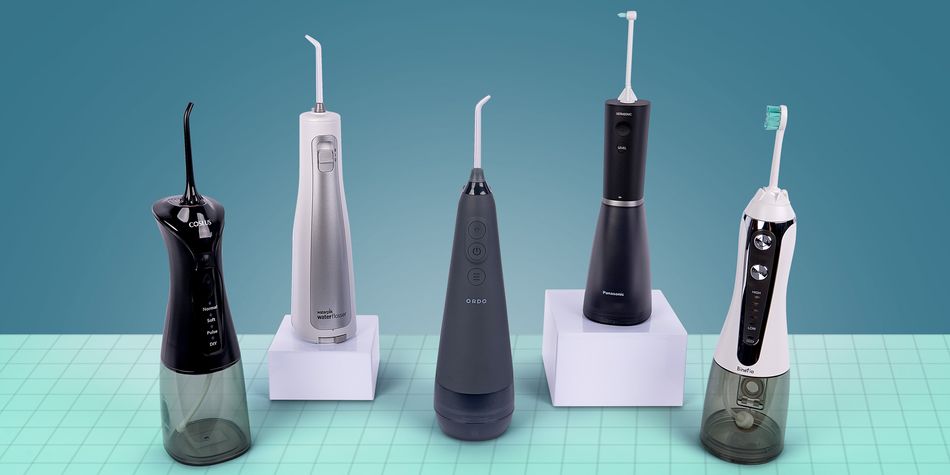By clicking a retailer link you consent to third-party cookies that track your onward journey. This enables W? to receive an affiliate commission if you make a purchase, which supports our mission to be the UK's consumer champion.
Can you recycle toothpaste tubes?

Plastic-based toothpaste tubes have traditionally been hard to recycle, with their flexible layers of mixed materials a thorn in the side of council recycling schemes and diligent recyclers alike.
While they are increasingly made from recyclable HDPE (high density polyethylene), some local authorities still don't accept toothpaste tubes via kerbside recycling schemes.
Here we explain what to do with your empty tubes to ensure they get recycled.
Eat well, live better, stay healthy - sign up to our free monthly Food & Health newsletter for the latest insights delivered straight to your inbox
Is your toothpaste tube recyclable?

In theory, most should be by now, but you'll still need to check the packaging to find out.
Big manufacturers had been working towards all their toothpaste ranges being recyclable by 2025, though when we checked in late 2024 we noted some have since said that this isn't going to happen.
For example, Colgate-Palmolive said in May 2024 that it could miss its target to make all its toothpaste packaging recyclable for 2025.
Procter & Gamble (which makes Oral B and Crest) has said it will be converting to recyclable HDPE tubes for its toothpaste 'by 2025' - but there hasn't been an update since. Which? contacted P&G for an update but hasn't heard back.
What to look for
Look for a symbol on the tube to indicate it is recyclable. This may be the brand's own unique recycling symbol, or one of the established recycling symbols.
You might see the symbol for HDPE plastic, which is what recyclable tubes are usually made from.

Checking your tube is made from recyclable plastic is the first step. But even if it is, your local authority might not be set up to accept it in its household recycling collection.
Local councils may advise you not to throw toothpaste tubes away in your recycling bin, without clarifying whether recyclable tubes are an exception. This means there's a chance your toothpaste tube could end up in landfill even if it is technically recyclable.
So what can you do? You can start by checking your local authority's recycling advice on its website.
More are starting to accept toothpaste tubes - you may get a leaflet to update you if this is the case.
You can find out more about the different symbols at the Recycle Now website and about common errors to avoid in our guide to recycling.
What to do if your council doesn't accept toothpaste tubes

If you're told to throw toothpaste tubes in general waste instead of recycling, you can instead look for a local collection point where you can drop tubes.
These are increasingly widespread, with big beauty chains Boots and Superdrug both operating drop-off schemes in-store.
Cosmetics and medicines have long been a neglected area of recycling. We found confusing advice and slow progress when we investigated bathroom plastics in 2020.
However, various retailers now have recycling schemes to cope with hard-to-recycle products (such as those that are too small, made from composite or non-recyclable materials).
Here are the biggest high street options for dropping off your toothpaste tubes:
Boots
The Recycle at Boots scheme, which allows you to collect Advantage Card points when combined with purchases at participating stores, enables you to recycle the following:
- Travel minis
- Make-up eg mascara tubes, lipsticks, eyeshadow palettes
- Toothpaste tubes, pump lotions
Medicine and vitamin blister packs can also be recycled in-store.
Superdrug
In conjunction with Maybelline and TerraCycle, Superdrug operates a beauty empties recycling drop-off service, including:
- Foundation bottles, concealer tubes, powders and blushers
- Eyeliner, mascaras (and mascara wands) and eyeshadow palettes
- Lipsticks, glosses and balms
- Caps, pumps and sprays
- It doesn't include make-up brushes, nail varnish and aerosols.
It also has a medicine blister pack recycling scheme, where you can drop off used packs in dedicated collection boxes in-store (along with old or unused medicine and used inhalers, which all pharmacies should take back).
The British Beauty Council
This beauty industry not-for-profit has an interactive beauty product recycling point map to help you find your closest beauty take-back recycling point for your empties.
Choosing the best toothpaste - which ingredients really work, and how to buy the best
Plastic-free toothpaste options

If all of this sounds like too much of a headache, you could avoid plastic toothpaste tubes by buying your toothpaste in tablet form.
Toothpaste tablets, a relatively new innovation, come in recyclable glass, card boxes or tins, and are designed to be chewed to form a paste in the mouth before brushing.
Make sure they include fluoride because some don't. Experts widely agree that fluoride is safe to use and important for dental health, as it helps to prevent tooth decay. Parla toothpaste tabs (around £7 for 62 tabs, available in Boots, Sainsburys and Waitrose ), contain fluoride.
5 tips for keeping your teeth healthy - oral care myths busted
Story originally published May 2023 but updated in January 2025.



